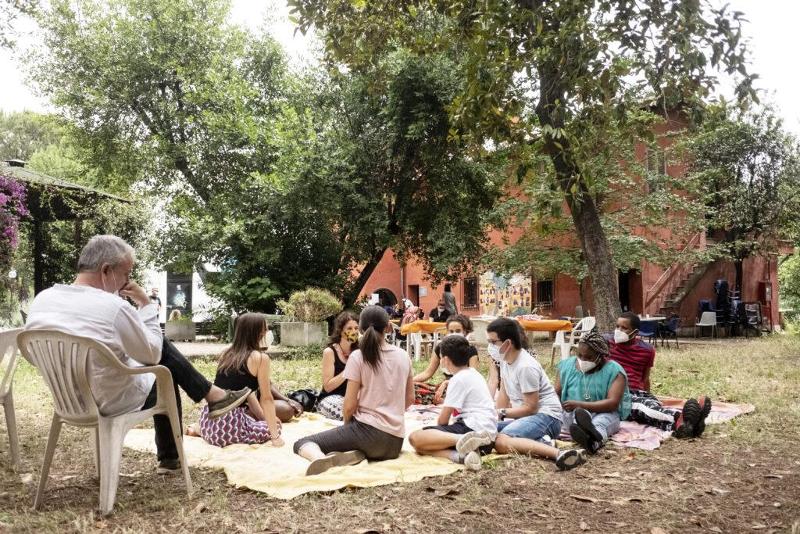On the roads of Europe. From Lampedusa to Brussels: a journey to shape the Europe of tomorrow
An in-depth conversation with Mariangela De Blasi, Vice President of Arci Solidarietà, and Diletta Alese, project manager, about Ways of Europe, the evolution of the Words of Europe project. Through transnational meetings in symbolic locations like Lampedusa and Brussels, the initiative aims to explore themes of migration, solidarity, and democratic participation.

What would a fairer, more democratic Europe look like—one where everyone feels like a global citizen? This is the question participants will attempt to answer in the upcoming events of the second chapter of the Words of Europe project. Mariangela De Blasi, Vice President of Arci Solidarietà, and Diletta Alese, project manager, shared insights into this initiative.
Can you tell us about the evolution from Words of Europe to Ways of Europe?
Ways of Europe will continue the journey started with Words of Europe, where we assembled a creative vocabulary of key terms about Europe's future. In this new edition, we will hold transnational meetings where the stories from the first edition can converge in symbolic locations.
At a time when migration policies are becoming increasingly restrictive, partly due to the rising support for right-wing parties, how does WE aim to counterbalance these narratives?
One of the first meetings will take place in Lampedusa, focusing on migration and solidarity. The project creates spaces for those who typically don't have the opportunity to share their stories, collecting these narratives to build a cross-border community that views the entire world as its home.
How were the locations along Europe's borders chosen?
The transnational events of Ways of Europe are set in symbolic places, each linked to crucial themes for Europe's future. These locations represent thematic borders where the challenges and opportunities of the European project intersect. For instance, in Brussels—the political heart of the EU—we'll discuss youth democratic participation, while Lampedusa will focus on migration issues.
How does WE address the idea of borders and seek to transform them into opportunities for building a more inclusive and connected Europe?
By seeing people first and foremost as global citizens, analyzing societal fractures, and creating bridges and spaces to mend those divides. It reminds us that the common good can truly be that of all humanity and the planet, recognizing shared challenges that do not stop at borders. Politics should follow this same principle.
How does the inclusion of new partners contribute to achieving the project’s goals?
The arrival of new partners enriches the project with fresh perspectives and expertise, expanding its impact and reach.
On one hand, Wijkz is the largest social work organization in The Hague, focusing on youth programs, violence prevention, and promoting healthy lifestyles, with a particular emphasis on including the elderly and vulnerable groups. On the other hand, Fundació Privada Pere Closa has been a reference point in Spain for over twenty years, supporting educational initiatives and combating discrimination against the Roma community.
What role does the new figure of the ambassador play, and how might this influence the project in the long term?
This is a new network of volunteers eager to contribute to the project's goals by participating in communication efforts and event facilitation. They will serve as representatives and liaisons between the partners and local communities. Through them, the project aims to strengthen participation in event organization processes, promote co-creation, and empower the many individuals involved.
Looking ahead, what will be WE’s lasting legacy for participants and communities?
WE is a deeply human experience that allows us to meet and engage with diverse perspectives, connect with others, and collaboratively define a shared transnational future. It’s also a testing ground, an opportunity to evaluate participatory techniques and methods. Ultimately, it's a political stance—an effort to build bridges, transcend borders, and create a more just, fair, democratic, and free society.


